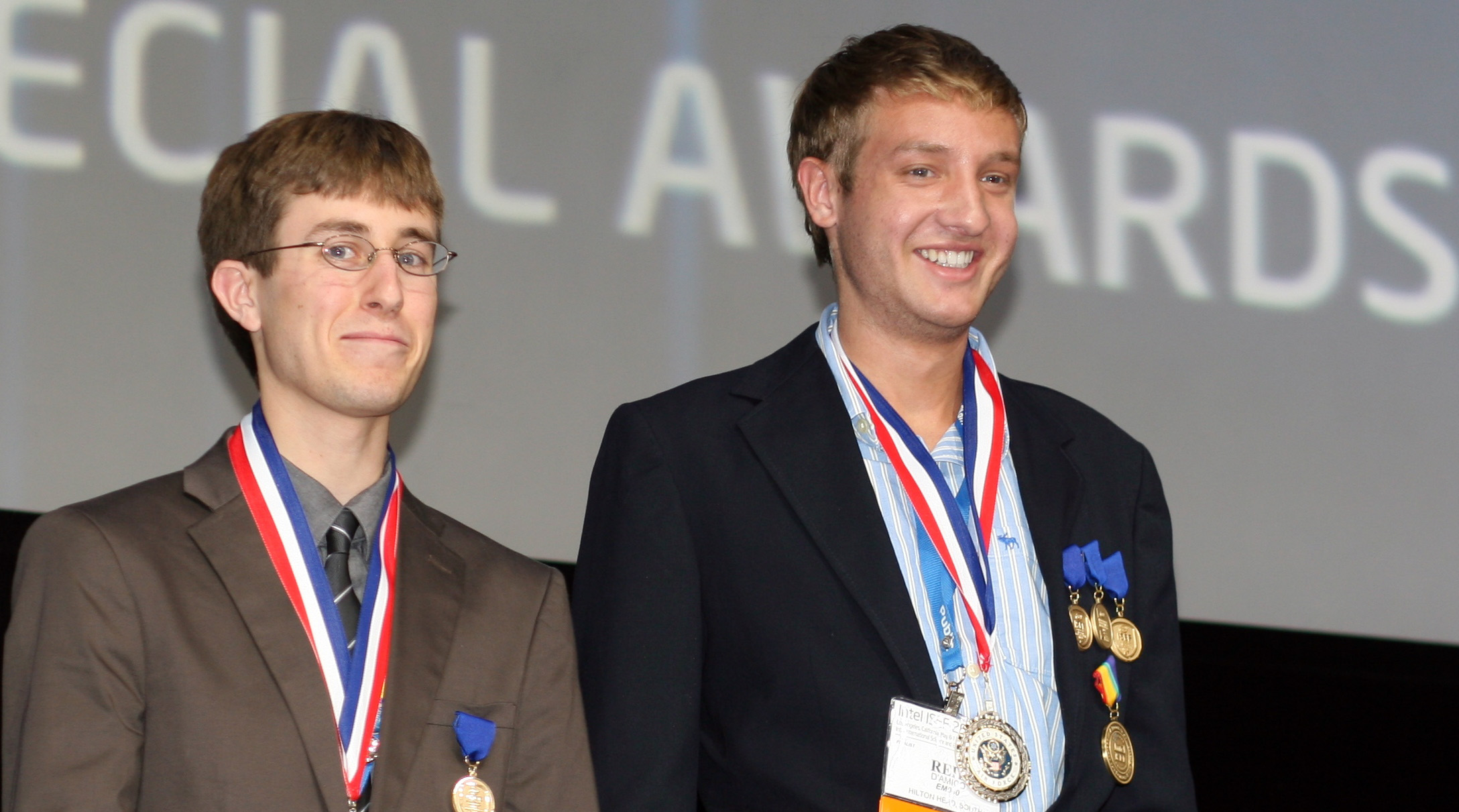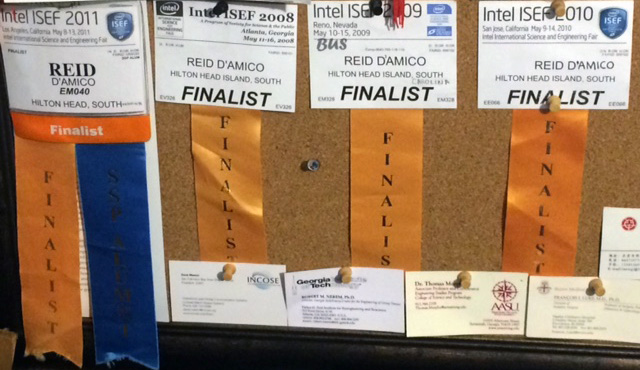Four-time Intel ISEF alum determined to make a difference

Insanity is doing the same thing over and over again, expecting different results. That’s how we know four-time Intel International Science and Engineering Fair (Intel ISEF) alum Reid D’Amico is a sane genius. He qualified for the world’s largest pre-college science competition every year for four years (Intel ISEF 2008-2011). He came back year after year to share his research with more peers, take home more prizes, and enjoy the experience once more (times four!)
Four years since his last Intel ISEF, Reid is still thankful for his experiences.
You all gave me the opportunity to love research and establish a passion to explore the complexities of science and engineering. Research has become my innate fascination. – Reid D’Amico
Reid recently graduated from Duke University with a degree in Biomedical Engineering and will begin his PhD at Vanderbilt University this August. We caught up with him to hear more about his incredible STEM journey.
What initially hooked you into science and research?
I was always fascinated with science growing up. My mom always recalls how I would “blow stuff up” in the microwave because I was doing experiments.
My middle school and high school required us to do a science fair project, and that’s where I really had the opportunity to explore and grow my passion for science and research. I won first place overall in the South Carolina Independent School Association in 8th grade, so I gained my first real experience before I started high school.
What was your most memorable moment as a four-time Intel ISEF finalist and award winner?
Besides all of the great memories making friends with people across the world, I would have to say that winning a Fourth Award when I was a freshman in high school was really eye opening.
While I was born outside of the D.C. area, I grew up on a small island in South Carolina. Winning that award really gave me a needed reality check that I didn’t have to be from a large metropolitan city to find success in research.

Can you provide a short description of your Intel ISEF research projects?
I always wanted to get involved with medical research, but I never had the resources or means to do so. Instead, my projects all concerned the environment and its management.
My freshman and sophomore year Intel ISEF projects sought to investigate why marsh grass growing along the southeastern United States was dying. I discovered that it was how the boardwalks and docks were being built on the marshes, and that there should be a reevaluation of the building structure if the marsh grass was going to be saved.
My junior year I took on my first engineering project. I created a hydroelectric turbine that could be used for personal use off the side of a dock. The island where I grew up had huge tide changes, so I found it natural to find a way to capture this great tidal fluctuation. This project was pretty fun to make and it even got mentioned during one of the opening welcome addresses at Duke University.
My last project as a senior sought to find a way to harness the electrons given off by bacterial oxidation in the soil. I created a plan microbial fuel cell and tried to optimize a plant type that would result in the greatest electrical output.
What motivates you to continue your research now? What is the main focus of your research?
I was diagnosed with cystic fibrosis (CF) at age 11. It was a terrible diagnosis, and I remember thinking that so many things in my life would end. The current life expectancy for those with CF is 37, so I hope to increase this daunting life expectancy until it’s the same as a healthy individual.
CF is a disease of multiple organs, but the lungs are the hardest hit. Applying to PhD programs, I found it hard to find where the lungs, engineering, and science find a research focus, but I hope to create a career around it. Vanderbilt University is where I decided to start my PhD, and they seem very supportive of these career goals. I plans to use stem cells and biomaterials to develop the next generation of polymeric biomaterials for regenerative medicine and medical device technologies. My ultimate goal is to apply my findings to pulmonary diseases like cystic fibrosis.
How did participating as a finalist in Intel ISEF affect the trajectory of your schooling and career?
Intel ISEF was my first opportunity to experience the power of research. Before I was even in college, I was gaining a foundation in how difficult, how much work, and how rewarding research can be. It also gave me a nice stepping stone when looking for labs to work in at Duke. I was able to showcase my research before college, and I believe it helped me land a good research assistant position.

Do you have any words of wisdom to share with young aspiring STEM enthusiasts?
Research is frustrating and you do not always find what you’re looking for– even after months of research. However, when you do discover or create something, it is worthwhile. It’s incredible to know that your research is actually changing someone’s life.
Find what you love, what you’re passionate about make a career out of it. My best friend and I used to use the quote “Find what you love and let it kill you;” it almost became comical since we were pulling yet another all-nighter in the engineering building. It’s hard work, but we loved what we did. It’s so easy to become passionate when you delve into STEM.


